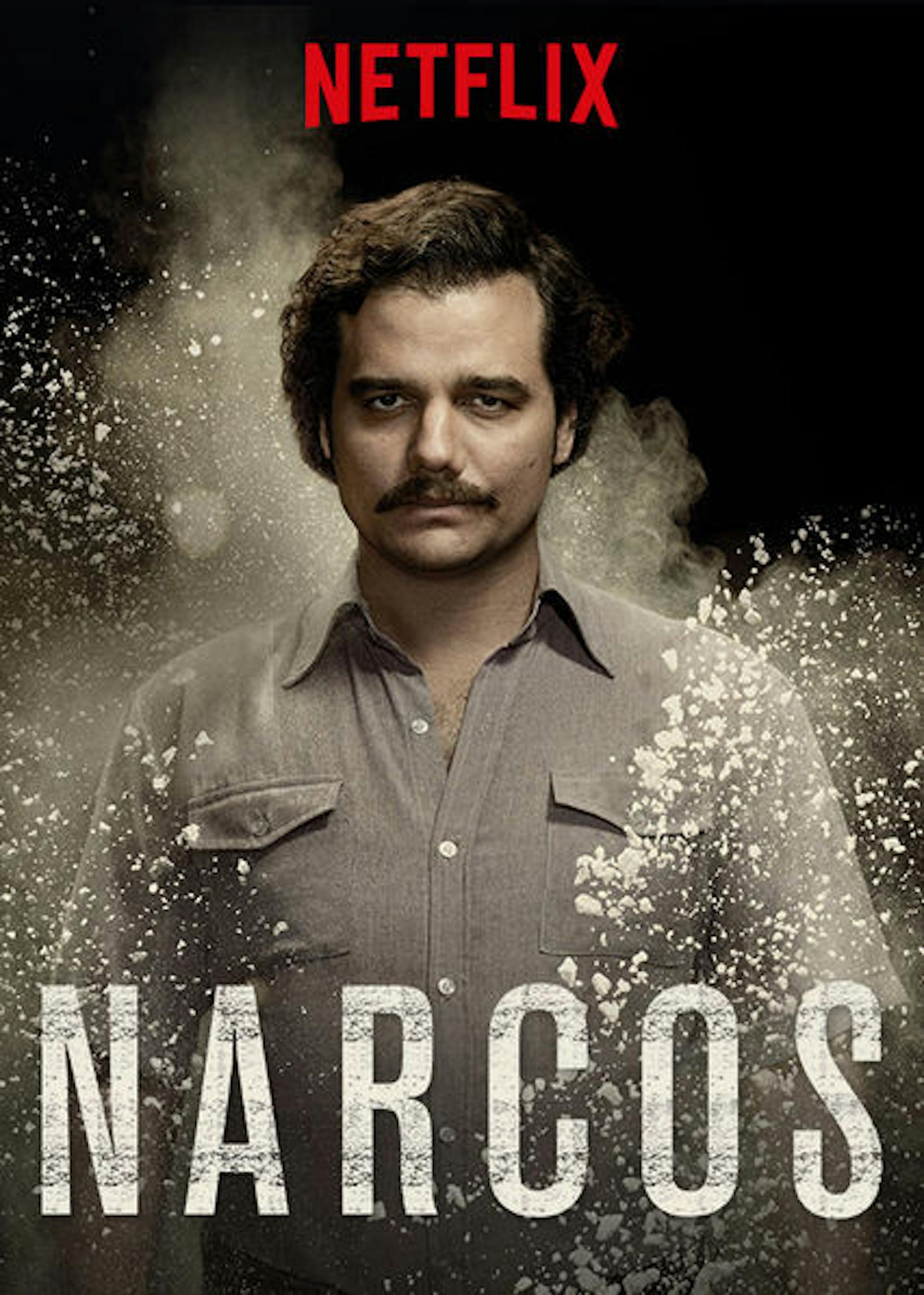Netflix’s crime drama “Narcos” (2015–) returned to the streaming service on Sept. 1 for a third season. Set in the 1990s, this season follows the Drug Enforcement Agency (DEA) and the Colombian government’s efforts to bring the Cali Cartel to justice, and the godfathers of the cartel’s attempts to retire from the drug business as billionaires.
The Cali Cartel, of course, became the largest cocaine trafficking operation in the world after the death of Pablo Escobar, the infamous drug lord and villain of the last two seasons. “Narcos” makes a point of spelling out to viewers early on the difference in styles between the leaders of the two cartels; where Escobar coveted the adoration of the common people and often slayed his enemies in brutal public displays of violence, the godfathers of the Cali Cartel prefer to do their killing discreetly and remain mostly anonymous to the wider population, instead associating with the Colombian elite. But these marked differences between villains don’t translate into a change of pace or tone for this season of “Narcos,” which still features plenty of violence and many moments of high tension as characters struggle to avoid grisly deaths.
Guiding the viewer through the violence and messy geopolitics of Colombian drug trafficking is Pedro Pascal’s returning character, DEA agent Javier Peña. As was rumored long before season three’s premiere, Peña is this season’s lead character and narrator. In this position, Pascal replaces Boyd Holbrook, whose character, DEA agent Steve Murphy, has been written out of the show. Though he lacks his predecessor's distinctive folksy drawl, Pascal’s narration is every bit as effective and feels like a natural part of the show, rather than a lazy way of communicating context to the viewer.
Pascal’s character is one of a small handful of returning major characters, and so season three of “Narcos” introduces the viewer to a host of new faces. The most important of these is Jorge Salcedo (Matias Varela), the Cali Cartel’s head of security and a former engineer who has developed a system of surveillance and informants so effective that he and his men can protect their charges without carrying guns.
Despite working for violent criminals, Salcedo takes pains to avoid harming anyone as he carries out his duties — seeking to end his relationship with the cartel, which is a source of life-threatening complications. The moral sacrifices that he makes to protect his family from his employers are some of the most interesting character developments that take place this season, but the viewer still never doubts Jorge’s fundamental decency. However some further exploration of why Jorge chooses to work for the cartel in the first place would have lent the character a degree of nuance that is missing from his constant portrayal as the “good man in a bad situation.”
Another new character this season is Maria Salazar (Andrea Londo). Salazar is mother to a young son and the wife of a drug lord who is executed by the Cali Cartel early in the season. After her husband is killed, Maria is forced to seek the protection of one of the Cali godfathers by trading sex for the safety of herself and her son.
The depiction of women in “Narcos” has garnered criticism, andMaria specifically has been labeled an example of the “crying woman” trope — a characterization which prompted Londo to push back in an Instagram post. Regardless of the appropriateness of her tears, Maria represents a tremendous wasted opportunity for this season. “Narcos” has been a hyper masculine show since its inception, and Maria’s character could have been more fully developed to add to the show’s very short list of developed female characters and to give viewers some insight into the struggles of those close to drug traffickers but who are not criminals themselves.
In all, season three of “Narcos” is a sharply written, impeccably acted action drama with a well-realized (and frankly underappreciated) period aesthetic. Through Jorge and Maria, the show admirably tried to develop some new ideas but fell short of fully realizing the potential of both characters. Fortunately, the “Narcos” formula of political intrigue and action is still in full effect and carries this season past its shortcomings.
'Narcos' reaches for new ideas, but falls back on old formula

The cover of "Narcos", a hit Netflix American crime web television series, is created and produced by Chris Brancato, Carlo Bernard, and Doug Miro. The returning third season introduces several new faces that the audience has been looking forward to.
Summary
Despite failing to fully realize the potential of some characters, "Narcos" still does what it does best in Season 3.
4 Stars





